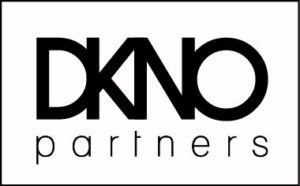Sales and imports to Norway
DKNO Partners helps you every step of the way
Entering the Norwegian market requires an understanding of proper VAT registration, tax reporting, customs regulations and efficient shipping solutions. We advise your business on the necessary procedures to avoid pitfalls and focus on growth in Norway without worry.
VAT in Norway
Get to grips with Norwegian VAT rules and rates and avoid surprises when registering your business correctly.
VOEC registration
Find out when VOEC registration is required for foreign companies selling goods to Norwegian consumers.
Tax in Norway
Understand the tax obligations of foreign companies in Norway to ensure correct reporting and avoid fines.
Customs in Norway
Understand and navigate Norwegian customs rules and get help for smooth customs clearance.
Shipping to Norway
Discover how the choice of shipping solution affects delivery so you can meet your Norwegian customers' expectations.
VAT in Norway
We help your business navigate Norwegian VAT regulations and ensure correct VAT registration so you can handle sales and taxes professionally. With our guidance, your business meets all Norwegian requirements and standards - and you can focus on your business without worry.
Contact us today for a no-obligation conversation!
VAT registration in Norway
Foreign companies selling goods or services in Norway must register for VAT if their turnover exceeds NOK 50,000 per year. Registration is done through the Norwegian Tax Administration and is required in order to invoice correctly with Norwegian VAT.
VAT-taxable and VAT-exempt goods and services
In Norway, most goods and services are subject to VAT, but there are exceptions, such as financial services and certain healthcare services, which are VAT-free. It's important to know the difference so that your business charges VAT correctly.
VAT reporting and deadlines
VAT must be reported to the Norwegian tax authorities on a quarterly or bi-monthly basis, depending on the company's registration requirements. Correct and timely reporting ensures that the company avoids fines and fulfills its statutory requirements.
Norwegian VAT refunds for foreign businesses
Under certain circumstances, foreign companies can apply for a refund of Norwegian VAT when it comes to purchases for business use in Norway. This is especially true for companies that are not established in Norway but still have VAT expenses related to local activities.
Norwegian VAT
When your business operates in Norway, it's important to stay on top of Norwegian VAT regulations. VAT registration and correct handling of taxes ensures that your business is compliant and avoids penalties. Get an overview of how VAT works in Norway and what requirements apply to foreign businesses.

VAT registration in Norway
Foreign companies selling goods or services in Norway must register for VAT if their turnover exceeds NOK 50,000 per year. Registration is done through the Norwegian Tax Administration and is required in order to invoice correctly with Norwegian VAT.
VAT-taxable and VAT-exempt goods and services
In Norway, most goods and services are subject to VAT, but there are exceptions, such as financial services and certain healthcare services, which are VAT-free. It's important to know the difference so that your business charges VAT correctly.
VAT reporting and deadlines
VAT must be reported to the Norwegian tax authorities on a quarterly or bi-monthly basis, depending on the company's registration requirements. Correct and timely reporting ensures that the company avoids fines and fulfills its statutory requirements.
Norwegian VAT refunds for foreign businesses
Under certain circumstances, foreign companies can apply for a refund of Norwegian VAT when it comes to purchases for business use in Norway. This is especially true for companies that are not established in Norway but still have VAT expenses related to local activities.
Norwegian VAT
When your business operates in Norway, it's important to stay on top of Norwegian VAT regulations. VAT registration and correct handling of taxes ensures that your business is compliant and avoids penalties. Get an overview of how VAT works in Norway and what requirements apply to foreign businesses.
We can help you!
We guide your business through the VAT process in Norway. We make sure everything is compliant with Norwegian VAT rules and standards so your business can operate efficiently and legally.
Contact us today for a no-obligation conversation!
Does your business need VOEC registration?
VOEC registration is a scheme that foreign companies must use when selling goods directly to Norwegian consumers. VOEC registration ensures that VAT is correctly charged on sales below NOK 3,000 and that the company complies with Norwegian e-commerce rules and requirements.
Need help with VOEC registration in Norway?
Contact us today for a no-obligation conversation!
What is the VOEC scheme?
VOEC (VAT On E-Commerce) is a Norwegian VAT scheme for foreign companies selling goods and services directly to Norwegian consumers through e-commerce. The scheme applies to goods with a value of less than NOK 3,000, excluding freight and insurance, and makes it easier for foreign companies to handle VAT without having to use the traditional customs clearance process.
VAT collection requirements
With VOEC registration, foreign businesses collect Norwegian VAT directly from the customer upon purchase, making it easier for the consumer and ensuring compliance with Norwegian tax rules. The VAT rate must follow the Norwegian rates and the company must report and pay the collected VAT to the Norwegian tax authorities quarterly.
Benefits of VOEC registration
The VOEC scheme provides a smoother process for businesses by removing the need for customs clearance at the border for each shipment. This reduces delivery delays and administrative costs, resulting in a better customer experience for Norwegian consumers and a more efficient solution for businesses.
How to register your business under VOEC
To become VOEC-registered, the company must register with the Norwegian tax authorities and be assigned a VOEC number. Once registration is complete, the company can start charging Norwegian VAT directly on sales. It is important to ensure that all VAT reports are submitted correctly and on time to comply with the Norwegian authorities' requirements.
VOEC registration ensures secure and legal e-commerce with Norwegian customers
VOEC registration is essential for foreign businesses that want to sell goods directly to Norwegian consumers. With the VOEC scheme, businesses can ensure they charge Norwegian VAT correctly on sales under NOK 3,000 and comply with the necessary Norwegian e-commerce regulations. Learn how VOEC registration can help your business navigate Norwegian requirements and ensure smooth trade with Norwegian customers.

What is the VOEC scheme?
VOEC (VAT On E-Commerce) is a Norwegian VAT scheme for foreign companies selling goods and services directly to Norwegian consumers through e-commerce. The scheme applies to goods with a value of less than NOK 3,000, excluding freight and insurance, and makes it easier for foreign companies to handle VAT without having to use the traditional customs clearance process.
VAT collection requirements
With VOEC registration, foreign businesses collect Norwegian VAT directly from the customer upon purchase, making it easier for the consumer and ensuring compliance with Norwegian tax rules. The VAT rate must follow the Norwegian rates and the company must report and pay the collected VAT to the Norwegian tax authorities quarterly.
Benefits of VOEC registration
The VOEC scheme provides a smoother process for businesses by removing the need for customs clearance at the border for each shipment. This reduces delivery delays and administrative costs, resulting in a better customer experience for Norwegian consumers and a more efficient solution for businesses.
How to register your business under VOEC
To become VOEC-registered, the company must register with the Norwegian tax authorities and be assigned a VOEC number. Once registration is complete, the company can start charging Norwegian VAT directly on sales. It is important to ensure that all VAT reports are submitted correctly and on time to comply with the Norwegian authorities' requirements.
VOEC registration ensures secure and legal e-commerce with Norwegian customers
VOEC registration is essential for foreign businesses that want to sell goods directly to Norwegian consumers. With the VOEC scheme, businesses can ensure they charge Norwegian VAT correctly on sales under NOK 3,000 and comply with the necessary Norwegian e-commerce regulations. Learn how VOEC registration can help your business navigate Norwegian requirements and ensure smooth trade with Norwegian customers.
We can help you!
VOEC registration ensures that your business complies with Norwegian VAT regulations and collects VAT correctly on sales to Norwegian customers. We offer professional assistance so you can focus on your business while we make sure all VAT reporting and payment requirements are taken care of.
Contact us today for a no-obligation conversation!
Tax in Norway
We advise on the tax rules in Norway and provide you with precise guidance to understand and manage the tax obligations for your business. We make sure your solutions are adapted to the Norwegian tax system so your business can operate professionally and comply with all applicable requirements.
Contact us today for a no-obligation conversation!
Tax on corporate income
In Norway, corporate income tax is set at a standard rate of 22%, which is imposed on company profits. Foreign companies operating in Norway must pay tax on income earned in the country. It's important to understand what income is taxable and how to correctly report it.
Prepayment and tax reporting
Norwegian tax authorities require companies to make advance tax payments throughout the year. These payments ensure that the company continuously pays tax on its expected income. Reporting is done annually and correct and timely reporting is necessary to avoid fines and delays.
Employer taxes and employee reporting
If your company has employees in Norway, you must also report and pay employer's contributions and income tax on behalf of your employees. This includes ongoing reporting and compliance with the Norwegian rules for employment and tax payment, which is important for maintaining a legal employment relationship.
Tax deductions and deductible expenses
Businesses in Norway can deduct certain expenses, such as travel costs, rent and staff expenses. It's important to know the applicable deduction rules, as correct deductions can reduce tax payments and improve the company's financial performance.
Norwegian tax
Understanding the Norwegian tax rules is essential for foreign companies looking to do business in Norway. Correct tax management and reporting ensures your business stays compliant and avoids penalties. Gain insight into how the tax system works in Norway and what requirements apply to foreign companies.

Tax on corporate income
In Norway, corporate income tax is set at a standard rate of 22%, which is imposed on company profits. Foreign companies operating in Norway must pay tax on income earned in the country. It's important to understand what income is taxable and how to correctly report it.
Prepayment and tax reporting
Norwegian tax authorities require companies to make advance tax payments throughout the year. These payments ensure that the company continuously pays tax on its expected income. Reporting is done annually and correct and timely reporting is necessary to avoid fines and delays.
Employer taxes and employee reporting
If your company has employees in Norway, you must also report and pay employer's contributions and income tax on behalf of your employees. This includes ongoing reporting and compliance with the Norwegian rules for employment and tax payment, which is important for maintaining a legal employment relationship.
Tax deductions and deductible expenses
Businesses in Norway can deduct certain expenses, such as travel costs, rent and staff expenses. It's important to know the applicable deduction rules, as correct deductions can reduce tax payments and improve the company's financial performance.
Norwegian tax
Understanding the Norwegian tax rules is essential for foreign companies looking to do business in Norway. Correct tax management and reporting ensures your business stays compliant and avoids penalties. Gain insight into how the tax system works in Norway and what requirements apply to foreign companies.
We can help you!
We guide you through all aspects of tax management in Norway. We ensure that your business complies with Norwegian tax rules and standards, so you can focus on your business without worry.
Contact us today for a no-obligation conversation!
Customs in Norway
We help your business navigate Norwegian customs regulations and ensure proper documentation and handling of customs procedures so you can import and export goods smoothly. With our guidance, your business will comply with all Norwegian customs requirements and standards - and you can focus on your core business without worry.
Contact us today for a no-obligation conversation!
Customs tariffs and taxes
Norway has different tariffs and taxes on imported goods, depending on the type of product and country of origin. It is important to know the applicable customs tariffs as tariffs vary and can have a big impact on the price of imported goods. Some goods are subject to higher customs duties, while others may be exempt.
Documentation requirements for import and export
When importing and exporting to Norway, specific documentation is required, which can include invoices, certificates of origin and shipping documents. Proper documentation ensures smooth customs clearance and is essential to get your goods through customs quickly without delays.
Customs procedures and customs clearance
Upon arrival in Norway, goods must go through customs clearance, where the customs authorities assess and approve them. This involves reporting correct customs information and paying any duties and taxes. Correct and timely customs clearance ensures that goods can be distributed quickly and avoids unnecessary waiting times.
Duty exemptions and special schemes
Some goods and trade agreements may allow for duty-free or reduced tariffs. This is especially true for countries that have trade agreements with Norway. By investigating possible tariff exemptions, your business can potentially reduce import costs significantly.
Norwegian customs
When your business operates with imports to Norway, it's crucial to stay on top of customs regulations. Proper customs management ensures that your goods can move smoothly across borders and that your business avoids delays and extra costs. Get an overview of the most important aspects of customs in Norway and what is required for foreign companies.

Customs tariffs and taxes
Norway has different tariffs and taxes on imported goods, depending on the type of product and country of origin. It is important to know the applicable customs tariffs as tariffs vary and can have a big impact on the price of imported goods. Some goods are subject to higher customs duties, while others may be exempt.
Documentation requirements for import and export
When importing and exporting to Norway, specific documentation is required, which can include invoices, certificates of origin and shipping documents. Proper documentation ensures smooth customs clearance and is essential to get your goods through customs quickly without delays.
Customs procedures and customs clearance
Upon arrival in Norway, goods must go through customs clearance, where the customs authorities assess and approve them. This involves reporting correct customs information and paying any duties and taxes. Correct and timely customs clearance ensures that goods can be distributed quickly and avoids unnecessary waiting times.
Duty exemptions and special schemes
Some goods and trade agreements may allow for duty-free or reduced tariffs. This is especially true for countries that have trade agreements with Norway. By investigating possible tariff exemptions, your business can potentially reduce import costs significantly.
Norwegian customs
When your business operates with imports to Norway, it's crucial to stay on top of customs regulations. Proper customs management ensures that your goods can move smoothly across borders and that your business avoids delays and extra costs. Get an overview of the most important aspects of customs in Norway and what is required for foreign companies.
We can help you!
We help you navigate Norwegian customs regulations so your business can import and export goods smoothly. We ensure that all customs and documentation requirements are met so your business avoids delays and unnecessary costs.
Contact us today for a no-obligation conversation!
Shipping to Norway
We provide guidance on the freight regulations in Norway and give you accurate advice to manage transportation and logistics for your business. We ensure that your freight solutions meet Norwegian requirements and standards so your goods can be imported efficiently and legally across borders.
Contact us today for a no-obligation conversation!
Rules for importing goods into Norway
Norway has special rules for importing goods as it is outside the EU Customs Union. This means that goods sent to Norway must go through customs and meet all Norwegian requirements. Proper documentation and information about the type of goods, value and country of origin is essential to ensure a smooth import.
Differences between shipping methods
Depending on your needs, you can choose between shipping methods such as sea freight, air freight and road transportation to Norway. Each method has different delivery times and cost levels. Sea freight is often a cost-effective solution for larger shipments, while air freight can be beneficial for goods with short delivery times. Road transportation can be convenient for fast delivery within Scandinavia.
The importance of correct freight and customs documentation
Proper documentation is necessary to avoid delays and extra costs when importing to Norway. Invoices, customs documents and transportation certificates must be filled out correctly and contain all necessary information. Missing or incorrect documentation can lead to delays and fines.
Use of hotel workshops and storage facilities
For companies shipping large quantities of goods to Norway, it can be beneficial to use hotel workshops or local storage facilities. These facilities allow you to store goods closer to the Norwegian market and reduce delivery time. This can be beneficial for companies that frequently ship to Norway and want to ensure fast delivery to customers.
When shipping to Norway
When your business needs to ship goods to Norway, it's important to understand the applicable shipping rules and logistics requirements. Proper handling of freight ensures your goods arrive on time and avoids delays and extra costs. Find out what you need to know about shipping to Norway and how to best meet the requirements as a foreign company.

Rules for importing goods into Norway
Norway has special rules for importing goods as it is outside the EU Customs Union. This means that goods sent to Norway must go through customs and meet all Norwegian requirements. Proper documentation and information about the type of goods, value and country of origin is essential to ensure a smooth import.
Differences between shipping methods
Depending on your needs, you can choose between shipping methods such as sea freight, air freight and road transportation to Norway. Each method has different delivery times and cost levels. Sea freight is often a cost-effective solution for larger shipments, while air freight can be beneficial for goods with short delivery times. Road transportation can be convenient for fast delivery within Scandinavia.
The importance of correct freight and customs documentation
Proper documentation is necessary to avoid delays and extra costs when importing to Norway. Invoices, customs documents and transportation certificates must be filled out correctly and contain all necessary information. Missing or incorrect documentation can lead to delays and fines.
Use of hotel workshops and storage facilities
For companies shipping large quantities of goods to Norway, it can be beneficial to use hotel workshops or local storage facilities. These facilities allow you to store goods closer to the Norwegian market and reduce delivery time. This can be beneficial for companies that frequently ship to Norway and want to ensure fast delivery to customers.
When shipping to Norway
When your business needs to ship goods to Norway, it's important to understand the applicable shipping rules and logistics requirements. Proper handling of freight ensures your goods arrive on time and avoids delays and extra costs. Find out what you need to know about shipping to Norway and how to best meet the requirements as a foreign company.

Calculate import costs on your items
Get a quick overview of the total cost of importing to Norway. Use the import calculator to calculate VAT and other taxes on your goods yourself.
Calculate the VAT on your items here
We can help you!
We guide you through all aspects of shipping to Norway. We make sure your business complies with Norwegian freight requirements and logistics standards so your goods arrive efficiently and smoothly.
Contact us today for a no-obligation conversation!
Do you need to register a company in Norway?
To operate in Norway, foreign companies must meet specific requirements, including registration in the Norwegian Register of Legal Entities and obtaining necessary permits. We help you through the registration process so your business can operate legally and professionally in Norway.
Are you ready to work in Norway?
As a foreign company, you must meet specific requirements to operate legally in the country, including securing HSE cards for your employees. We'll guide you through the process and make sure your company meets all the necessary requirements to work safely and responsibly in Norway.
